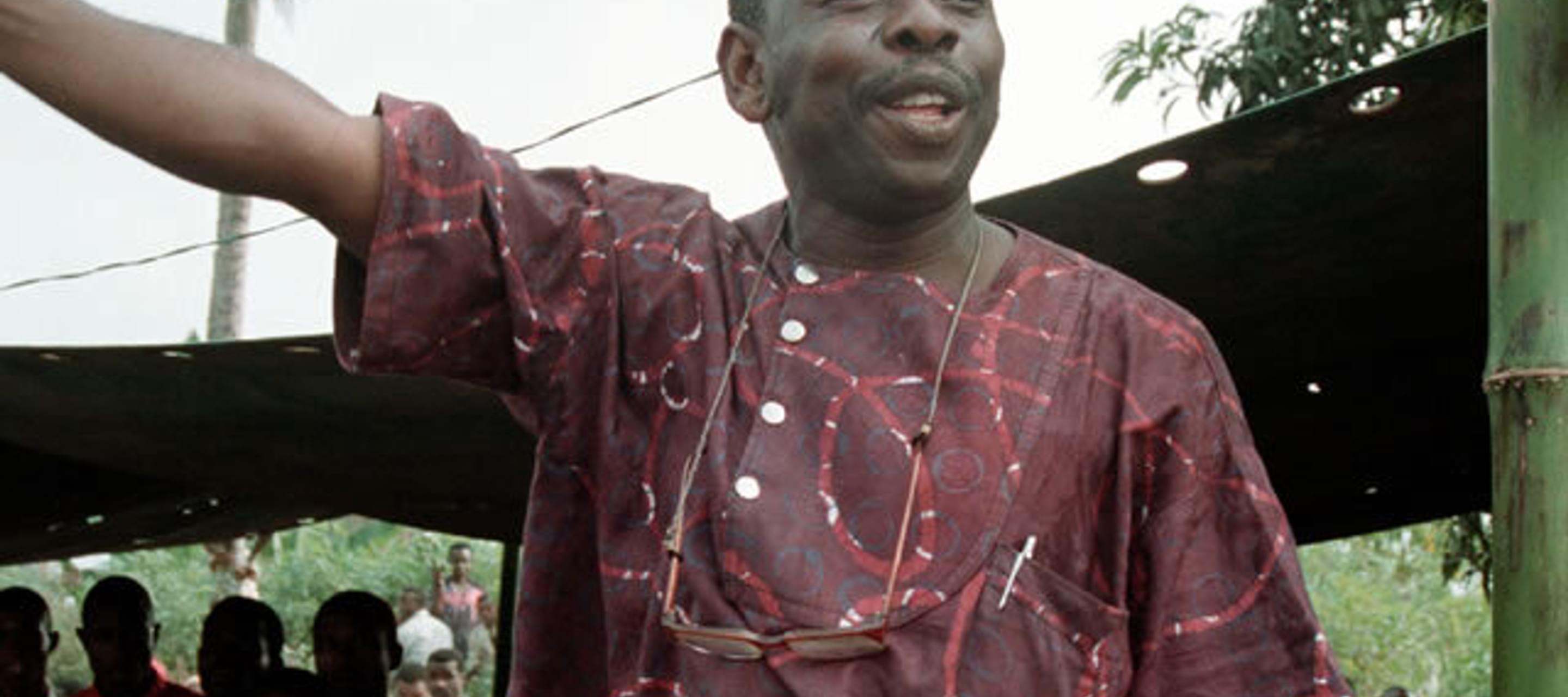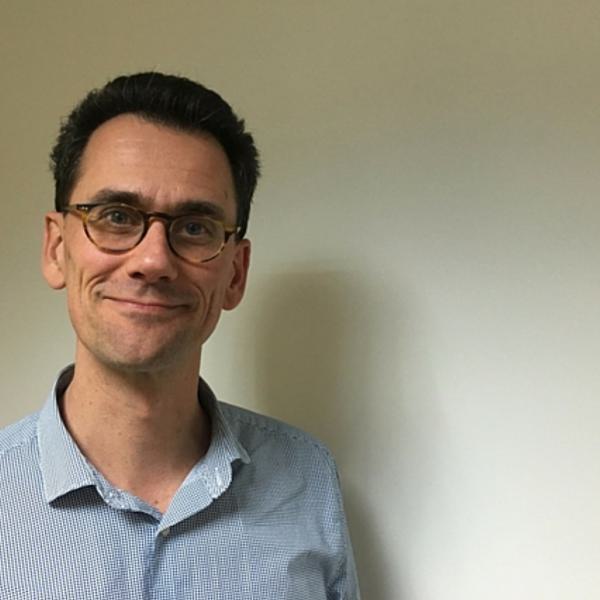What Ken Saro-Wiwa Taught Me
10 November 2015

Today, 20 years ago, I stood in front of a friend’s hotel door, afraid to knock. I was there to tell him his father had been hanged by the military dictatorship in Nigeria because his father had the temerity to fight for the human rights of his people. I knew the content of my message would change my friend Ken’s life forever. I didn’t realize at the time it would also change mine.
Ken Saro-Wiwa was the leader of the Ogoni people in Nigeria’s oil rich delta. I met Ken In January 1993 when he attended the Unrepresented Nations and Peoples Organization (UNPO) general assembly in The Hague, The Netherlands. That meeting was the beginning of my relationship with the Ogoni people and their struggle against Shell and their business partner, the Nigerian military government. I ended up having the extraordinary privilege of working with the Ogoni people in their struggle for social and environmental justice from their government and oil companies, especially Shell, almost daily for six years.
Ken was relentless and always wanted better and more when I worked with him. I think he found my skepticism irritating but I was committed to making absolutely sure the Ogoni campaign was credible and sustained. Unfortunately, Ken and the Ogoni peoples’ success with that campaign led to many deaths and much suffering for the Ogoni people and little change to their enjoyment of their human and environmental rights. However, it was a turning point in the debate on whether business has a responsibility to respect human rights.
It was today, 20 years ago that I had to wake Ken Wiwa, to tell him of his father’s execution. I was working with Ken Wiwa, at Commonwealth Heads of Government Meeting (CHOGM) in Auckland New Zealand, meeting with heads of government to plead for their intervention to save the lives of the Ken Saro-Wiwa and his colleagues. I paused before knocking on that door and wondered what words I could possibly use. It was a moment that further sharpened a sense of injustice and my commitment to do more.
Thankfully I was not the only one. That day changed the debate on business and human rights forever.
I believe Ken Saro-Wiwa and Sir Geoffrey Chandler, the former Shell executive who led the UK Amnesty Business Group, were the two individuals who made the greatest contribution in bringing attention to the corporate responsibility to respect human rights. Sir Geoffrey had deep familiarity with the way industry worked, and his conscience told him what was right and what was wrong: so when he spoke to companies, he did so with credibility, and when he spoke to human rights groups, they trusted him. Professor John Ruggie and his team would later be extraordinarily successful in codifying global societal expectations into the United Nations Guiding Principles on Business and Human Rights.
The Saro-Wiwa execution was a huge blow. I recalled how the Australian judge, Justice Michael Kirby had challenged me earlier, gently admonishing me to channel my passion and enthusiasm in ways that would have a greater impact. I needed to think and work on a global scale. So I took his point and moved from adversarial human rights activism to providing companies with advice on how to improve their human rights and social performance – so no one else dies because they defend human rights.
The most recent step in that career was taken in August 2015 when I become a Partner, Human Rights and Social Impact at KPMG.
Many have congratulated me on seemingly being the first Partner within the big four accounting firms to have the words “human rights” in their title. But that is not the achievement. That is a beginning. Rather, I see it as an exciting signal that business and human rights is becoming a mainstream issue, and a core business concern. I carry the title with a deep sense of responsibility and have as my personal goal that by the time I will retire – only eight years away – that I have helped to established a global practice on business and human rights. It would also be my way to honour Ken, and all those other human rights defenders who have challenged and held corporates to account on human rights and work towards Ken’s final words “Neither imprisonment nor death can stop our ultimate victory”.




